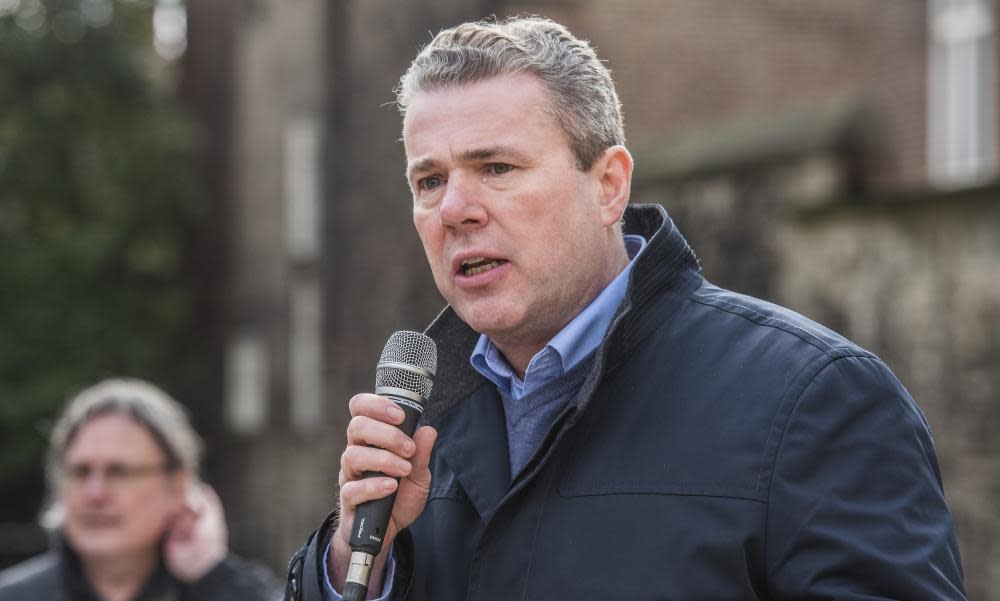UK civil servants' union boss urges 'significant' strike over pay cap

The head of Britain’s biggest civil servants’ union is calling on members to approve a “significant and sustained” strike aimed at frontline services over the government’s pay cap.
Mark Serwotka, the general secretary of the Public and Commercial Services Union (PCS), said he would seek support for industrial action this week after being told by the government there was no extra money for the public sector.
Public services that could face disruption include universal credit, passport offices, border controls, tax collection, the DVLA and the justice system.
The move, announced in an interview with the Guardian on the eve of the union’s annual conference, will be watched closely by the Labour movement and the government.
Trade unions have argued that all public sector workers deserve a fully funded 5% increase after six years of pay restraint.
Serwotka, a close ally of Jeremy Corbyn, said the government had broken a promise made last year to lift the pay cap.
“We will be seeking to set up a strike ballot starting in early June. It won’t be a one-off strike, that ballot will be for significant and sustained industrial action targeted in those areas that will have the maximum effect,” he said.
Serwotka indicated the union had received a letter from the Cabinet Office minister Oliver Dowden which said there was no money put aside for civil servant pay rises above 1%.
“The language is different but they are saying any increase will have to come out of efficiency and job cuts. We have already had 180,000 job cuts in the last period since 2010 and we will need significantly more resources to manage across public services post-Brexit,” Serwotka said.
He said the union’s executive had submitted an emergency motion to its conference in Brighton to seek authority to move immediately to a strike ballot, and expected an “overwhelming vote” in favour of a statutory ballot.
Theresa May and Philip Hammond announced last year they would lift the pay cap, but the changes were only applied to some workers.
Police received a 1% pay increase with a 1% bonus, while prison officers were given 1.7%. The PCS has negotiated an above-inflation pay rise for some civil servants in Scotland.
In March, more than 1 million NHS employees were offered a 6.5% pay rise over three years if they forfeited a day’s holiday in return.
The pay cap was imposed in 2012 and followed a two-year pay freeze imposed by David Cameron’s coalition government. PCS has called for a 5% across-the-board increase, saying its members have faced a 9% pay cut in real terms since 2010.
An indicative ballot of PCS members conducted in the autumn found almost 80% were prepared to strike over pay. In answer to the question “Do you agree that the pay cap should be scrapped, and that funds should be made available to provide you with an above-inflation pay rise?”, 98.9% answered “yes”.
Some in the Labour movement are privately concerned about whether the PCS ballot will gain support from 50% of eligible union members needed for a legal strike. They believe the indicative ballot achieved such high numbers only because of the use of electronic votes, while the law will require supporters to send in postal votes.
A Cabinet Office spokesman said the proposed action was a matter of regret and urged the union to resume talks.
“The publication of the civil service pay deal will be announced in due course. We want to ensure civil servants are rightly rewarded for the work that they do, while ensuring we maintain a carefully managed pay framework over the coming years,” he said.

 Yahoo News
Yahoo News 
